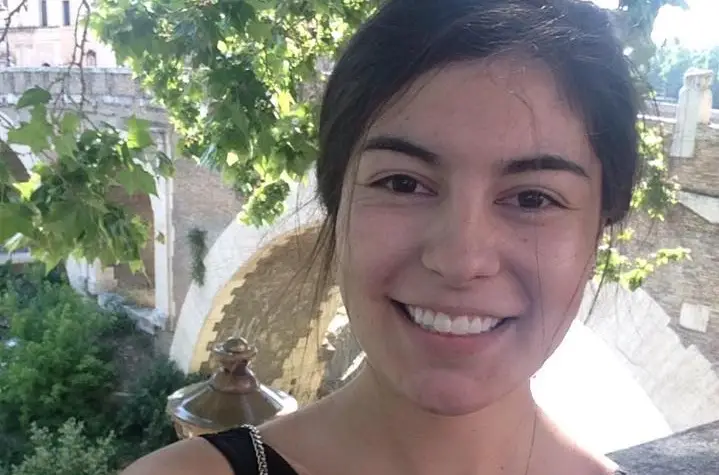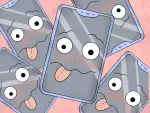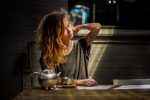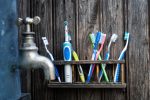Alina Schroeder, a biomedical engineering major at the University of Texas at Austin, is doing amazing things for her field. As the sitting president of Texas Engineering World Health, she is currently spearheading a project that will help treat newborn children who have jaundice, a disease that indicates a problem with the liver or bile duct.
Characterized by a yellow-ish tinge of the skin and eyes, jaundice is rather difficult to cure in the developing world as medical resources aren’t up to par. However, Schroeder and the Texas Engineering World Health team have taken on the task of creating an effective and sustainable cure for this disease.
Their incubator device uses a technology called Bili lights to break down bilirubin, a waste material of the blood whose buildup often leads to jaundice.
Jade Hookham: Please explain the incubator and Bili lights. How do they work and what was the thought process behind the device’s creation?
Alina Schroeder: Most developing world countries do not have the number of incubators they need due to the high cost. The idea behind this project is that neonatal incubators can be made at a much lower cost so that the developing hospitals can afford them.
Also, many newborns in the developing world have jaundice, so we thought the best thing was to combine these two applications into one device to help a higher number of newborns.
JD: How did you first develop an interest in biochemistry and engineering? What motivated you to choose your major and focus?
AS: I developed an interest in engineering because I like being able to make projects and devices from a single idea that can really make a difference. I think it is amazing to be able to work on a team and collaborate to create something that incorporates so many different aspects.
I am really interested in the medical side of engineering because there are so many opportunities for improvement that can really help people. The smallest design changes can go a long way. I was motivated to choose biomedical engineering because I’ve always been very interested in the medical field and biomedical engineering allowed me to combine my interests with real world applications.
JD: What drew you to become a part of Texas Engineering World Health? What are the greatest challenges and rewards of leading a diverse group of individuals?
AS: I was drawn to Texas Engineering World Health because it allowed me to apply what I was learning in class to real world projects. I also love being able to work on projects that target people who really need it. I have grown so much by being a part of this organization. I have been able to work with people from all different majors and different levels of experience.
Working with people with different backgrounds allows you to come up with so many different ideas and helps you see things from different perspectives. Some of the challenges is that everyone has a different mindset. It is hard to balance all of the different ideas into one project.
JD: The team will be competing at the Engineering World Health’s Design Competition this year, correct? Have you competed in similar events before? If so, how do you anticipate this experience will be similar or different from your previous ones?
AS: We have participated in the Engineering World Health Design Competition every year. Last year, we tried to work on more than one project, which complicated things because it caused us to spread our members across too many areas.
This year we were able to tackle a more challenging project because we had all of our members working on one project. I think this has allowed us to improve our progress and efficiency.
JD: What is the most valuable thing you have learned throughout your time at the University of Texas at Austin? Would you change anything about your experience?
AS: The most valuable thing that I learned from my time at the University of Texas at Austin is to take advantage of every opportunity you get. I had some amazing experiences such as studying abroad, internships, researching in a lab that worked on nanoparticles for cancer therapy, and this organization because of some amazing opportunities that I took advantage of. I think the best thing is to always seek out new things.
JD: Do you have a specific role model (academically or personally)? If so, who?
AS: I wouldn’t say that I have a single role model. There have been many people in my life who have influenced me. Professors such as Dr. Maynard and Dr. Zoldan are two people who have really inspired me academically. The research they work on is incredible and they are strong leaders in their field.
The graduate student I volunteer with for research on nanoparticles for cancer therapy has been an amazing role model. She has taught me so much over the years I have worked with her. She has given me so much advice on industry and has taught me how to be successful in lab work and research.
I have also had amazing mentors in my internship experiences. I have had many people who have helped me through college and helped me grow as an engineering and a researcher.
JD: What type of career do you intend to pursue after graduation? Do you have any particular ambitions for the future?
AS: I am working at Procter & Gamble on product design in research and development.
JD: If you could give one piece of advice to someone who wants to pursue a degree in STEM, what would you say?
AS: I think the best thing is to stay focused and try to figure out what you want to do with your future early on. It is easy to be discouraged if you don’t focus on a goal for the future that keeps you going. In engineering, you are going to have a lot of difficult classes and hard semesters that will cause you to get stressed. The best thing is to just stay focused and determined.

















